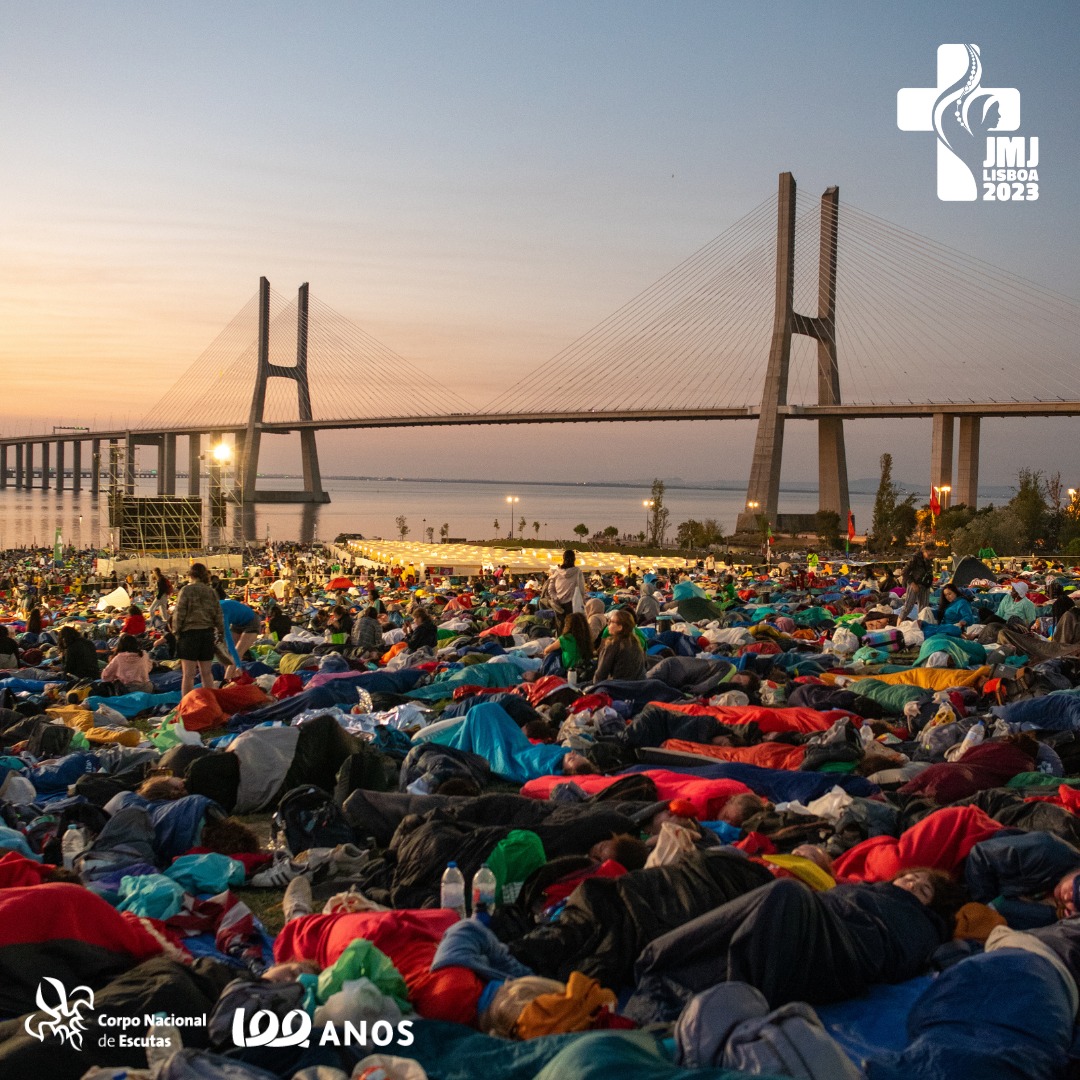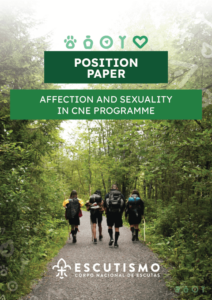
a. is a member of a sinodal church that listens to all and desires to walk with all;
b. is a member of the World Organisation of the Scout Movement and strives to make a contribution through its unity and development of its identity and mission;
c. believes in God’s unconditional love for each of His children in the truth and individuality of everyone’s existential condition (acc.cf Isa 43:1-4), including their sexual orientation;
d. strives to help children and young people develop their personal life plan, meeting Jesus Christ, to become citizens who play a constructive role in society and are committed to changing the world constantly;
e. is aware of the real challenges facing all leaders in their units in a constantly-changing socio-cultural context;
f. understands that humans are sexual beings and that experiencing affection and sexuality is a fundamental personal dimension that encompasses the whole of existence;
g. considers that human sexuality should be considered from the standpoint of every dimension of the human condition;
h. recognises how affection and sexuality contribute to a happy life and is fully aware of the existence of pain, suffering and exclusion situations;
i. understands that affection and sexuality develop closely and seamlessly in each of the human dimensions covered in CNE’s programme (physical, emotional, character, spiritual, intellectual and social) in order to contribute to the full realisation of happiness to which each person is called and seeks;
j. recognises that the sexual expression of love is also desired by God in the context of genuine human love;
k. believes in the richness of the sacrament of marriage, based on a relationship between man and woman, as an occasion open to life, recognising, however, that the Christian experience of love is not unique to this type of union;
l. does not support educational methods and ideologies that promote a personal identity and emotional intimacy radically separated from the biological difference between male and female or based purely on the choice of the individual (acc. Amoris laetitia 56);
m. maintains that biological sex and the socio-cultural role of sex (gender) are distinguishable but inseparable in building identity (acc. Amoris laetitia 56).
a. CNE accepts children and young people in their individual path as they stand, supporting them in developing all aspects of their identity, including sexual orientation;
b. CNE offers children and young people, as protagonists of their overall development, an educational path, in which experiencing affection and sexuality is fully and harmoniously present, helping them to grow into an active adulthood, able to exercise critical judgement, able to get involved in society, enlightened by their Christian faith and prepared to face up to and respond to daily problems;
c. CNE stresses that respect for personal liberty and the involvement of families lie at the heart of bringing up their sons and daughters in the light of the Gospel of Jesus Christ;
d. CNE considers that personal experience of sexuality needs to be directed towards building happiness, based on commitment and being productive, leading to a life in which gifts, talents and qualities are put to the service of the common good, even where there can be no biological procreation;
e. CNE encourages its members to be aware of painful situations experienced by people of different sexual orientations, as they develop their personal identity;
f. CNE rejects aggressive behaviour or unfair discrimination in interpersonal, emotional or sexual relations whether in CNE or in family and social contexts, reaffirming that everyone, regardless of their sexual orientation, has to be respected in his or her dignity and treated with consideration, (acc. Amoris laetitia, 250);
g. CNE requires all adults in a leadership role – educator and evangeliser – to act with human and Christian maturity, using the gifts, talents and qualities they possess so that they are able to identify the challenges faced in experiencing affection and sexuality today, respecting the reality of everyone’s existential condition including their sexual orientation;
h. CNE recognises that the existential condition of adult leaders in CNE, and the experience of their own sexuality, need to be considered in the light of truth in relationships that have, in turn, to be based on commitment, being productive and achieving the common good;
i. CNE develops awareness, equips and trains its leaders to welcome and develop children and young people on the basis of everyone’s existential condition;
j. CNE takes an active part in discussing and promoting attitudes in the Church that foster the creation of an atmosphere of welcome and inclusion in the light of the teaching of the Gospel of Jesus Christ, and actively promote ecclesial communion.
